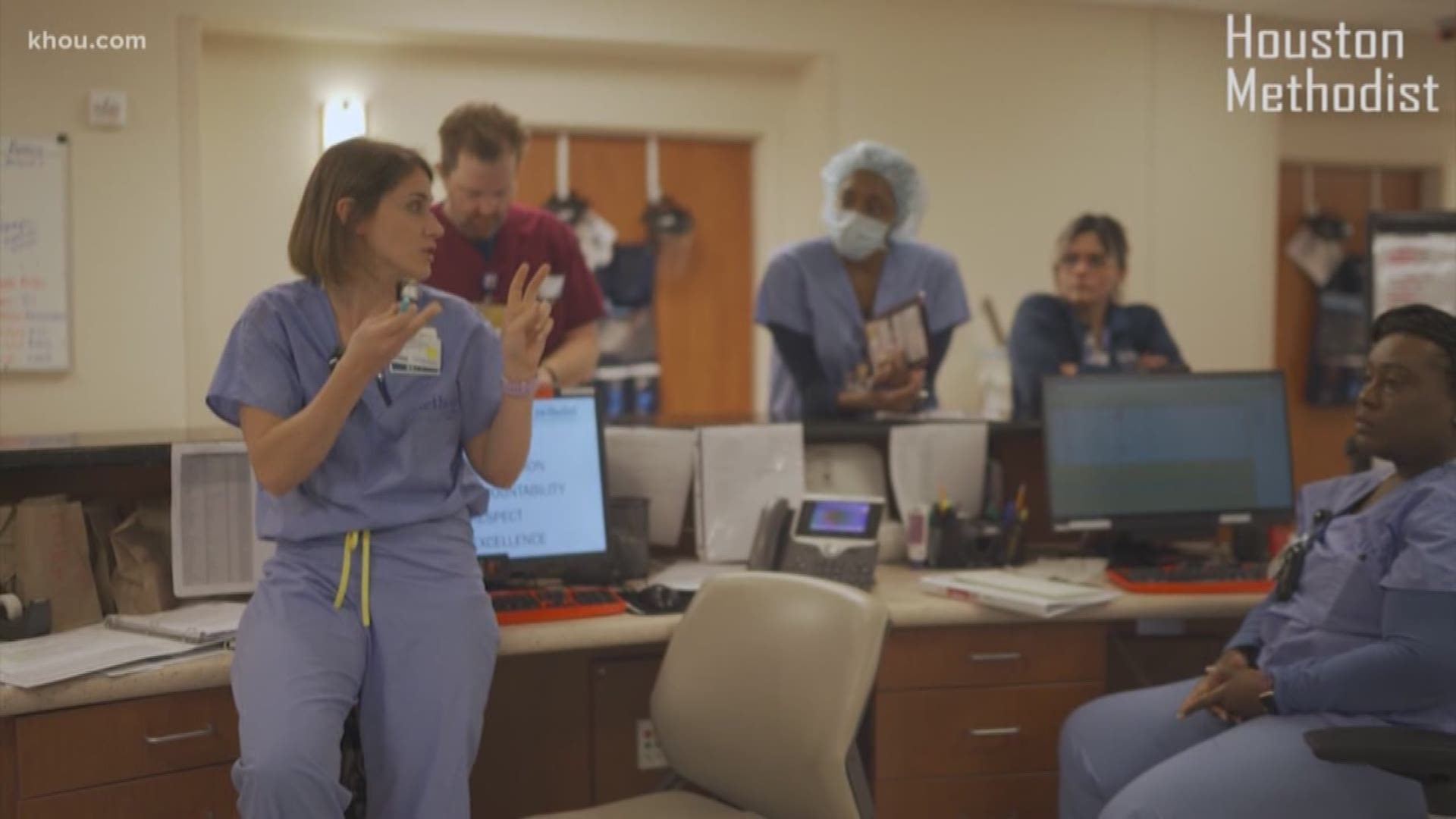KATY, Texas — Some of the sickest coronavirus patients are being treated at a special facility in Katy.
A highly infectious disease unit has been created by Houston Methodist at its continuing care hospital.
"This was actually established a few years back when the Ebola crisis started, in anticipation of any cases coming here," said Dr. Mir Alikhan, a pulmonary and critical care physician at Houston Methodist.
He has been treating coronavirus patients.
Houston Methodist doctors and nurses have volunteered to work at this facility to fight coronavirus on the front lines.
"We've got people from the medical center, from Sugar Land, from Willowbrook, from The Woodlands, from all over, who are coming together for the common cause, for the common good of the community," Dr. Alikhan said.
Medical staff members do what they can to protect themselves as they treat the patients who are in negative pressure rooms, meaning the air in the rooms goes through a filter before being released outside.
Dr. Alikhan said the fight is far from over.
"Most epidemiologists in the Houston and Texas areas are anticipating there will be a rise in cases in the next one to two weeks, so we're trying to be as prepared as possible and make sure we have everything ready to go," he said.
The highly infectious disease unit started taking in coronavirus cases on March 23. Since then, there has been a steady stream of patients.
The unit started out with 20 beds. Now 42 are available as doctors and nurses continue the work of saving lives.
Coronavirus symptoms
The symptoms of coronavirus can be similar to the flu or a bad cold. Symptoms include a fever, cough and shortness of breath, according to the Centers for Disease Control. Some patients also have nausea, body aches, headaches and stomach issues. Losing your sense of taste and/or smell can also be an early warning sign.
Most healthy people will have mild symptoms. A study of more than 72,000 patients by the Centers for Disease Control in China showed 80 percent of the cases there were mild.
But infections can cause pneumonia, severe acute respiratory syndrome, kidney failure and even death, according to the World Health Organization. Older people with underlying health conditions are most at risk for becoming seriously ill. However, U.S. experts are seeing a significant number of younger people being hospitalized, including some in ICU.
The CDC believes symptoms may appear anywhere from two to 14 days after being exposed.
Human coronaviruses are usually spread through...
- The air by coughing or sneezing
- Close personal contact, such as touching or shaking hands
- Touching an object or surface with the virus on it, then touching your mouth, nose or eyes before washing your hands.
Help stop the spread of coronavirus
- Stay home when you are sick.
- Eat and sleep separately from your family members
- Use different utensils and dishes
- Cover your cough or sneeze with your arm, not your hand.
- If you use a tissue, throw it in the trash.
- Follow social distancing
Lower your risk
- Wash your hands often with soap and water for at least 20 seconds. If soap and water are not available, use an alcohol-based hand sanitizer.
- Avoid touching your eyes, nose, and mouth with unwashed hands.
- Avoid close contact with people who are sick.
- Clean and disinfect frequently touched objects and surfaces.
- If you are 60 or over and have an underlying health condition such as cardiovascular disease, diabetes or respiratory illnesses like asthma or COPD, the World Health Organization advises you to try to avoid crowds or places where you might interact with people who are sick.
Get complete coverage of the coronavirus by texting 'FACTS' to 713-526-1111.

